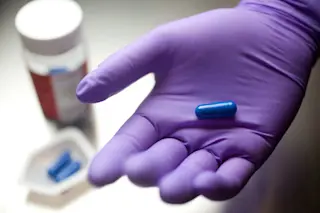Mark Smith dares you to come up with a fecal joke he hasn’t heard. It’s not your typical industry parlance, but when you’re in the business of transplanting the stuff, it helps to have a sense of humor about it. “I think we’ve gone through just about every poop pun under the sun,” says Smith, who makes a living reallocating the contents of people’s bowels.
He’s the co-founder and CEO of Massachusetts-based Finch Therapeutics, one of a host of companies developing, erm, unexpected cures for patients with ailing microbiomes. Our guts are home to billions of bacteria, many of which are actually essential to our internal workings. They’re key players in digestion and the immune system, among other bodily functions. Imbalances in the microbiome have been implicated in conditions ranging from irritable bowel syndrome to Type 2 diabetes, cardiovascular disease and depression.
To reset the microbiome, the best medicine comes ...















